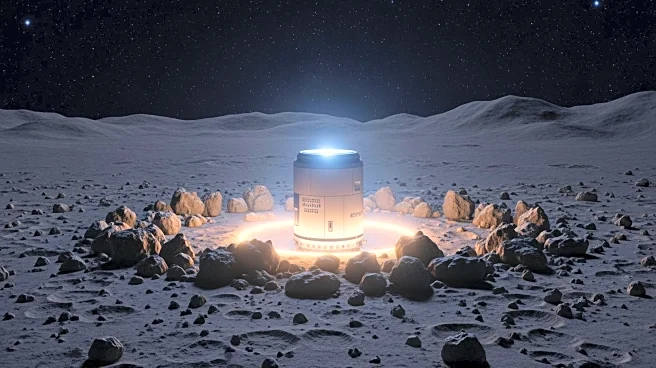What's Happening?
NASA has announced plans to deploy a nuclear reactor on the Moon by 2030 as part of its Artemis program. This initiative is part of a new space race, with China and Russia also working on their own lunar
energy projects. The Moon's south pole is the targeted site due to its significant water ice reserves, which are crucial for sustaining life and producing rocket fuel. The project has entered a new phase with commercial partners joining NASA, potentially opening up industrial and economic opportunities. However, the deployment of nuclear technology in space raises technical and legal concerns, including the risk of transporting nuclear materials and the creation of exclusion zones.
Why It's Important?
The deployment of a nuclear reactor on the Moon could significantly impact global space exploration, offering solutions to energy challenges in space. It could also lead to geopolitical tensions, as the establishment of exclusion zones by China and Russia might limit other nations' access to strategic lunar areas. The involvement of commercial partners in NASA's project could accelerate development and create new markets in the space industry. However, the legal and safety challenges associated with nuclear power in space remain a concern, potentially affecting international collaboration and competition in lunar exploration.
What's Next?
The next decade will be crucial in determining whether major powers will collaborate or compete in lunar exploration. NASA's partnership with commercial entities could lead to faster development and more cost-effective solutions. The legal framework surrounding nuclear energy in space may need to be clarified to address territorial claims and safety concerns. The outcome of this space race could shape humanity's expansion beyond Earth for decades, influencing future lunar bases and infrastructure.
Beyond the Headlines
The ethical and legal implications of deploying nuclear technology in space are significant. The creation of exclusion zones could lead to territorial control, challenging the principles of the Outer Space Treaty. The collaboration between commercial and governmental entities in space exploration could redefine the industry's landscape, potentially leading to new economic opportunities and technological advancements.









